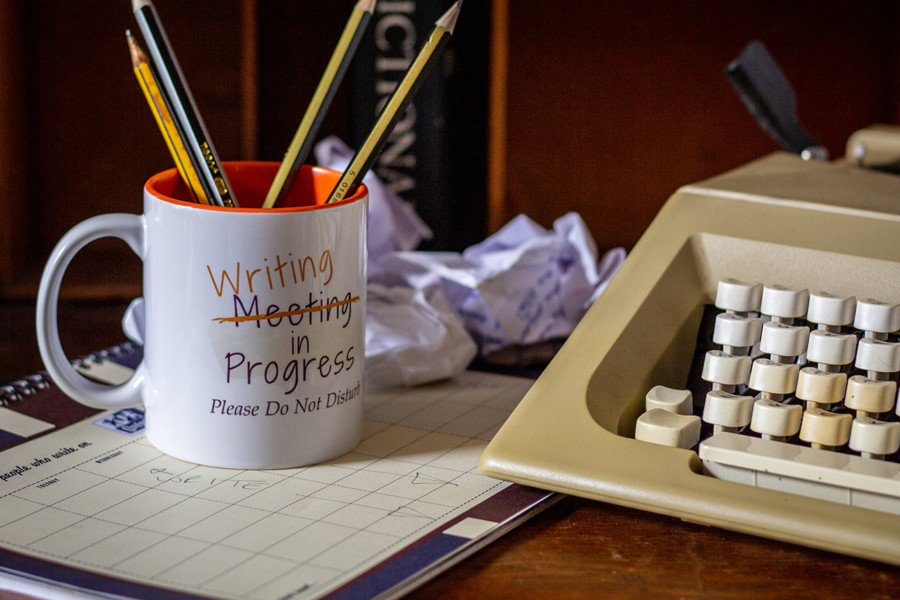These 2 pieces of advice for (student) readers came across my virtual desk: How to read a book, v5.0 by Paul N. Edwards, School of Information, University of Michigan Reading with purpose by Michael Newman, Associate Professor of Media Studies, University of Wisconsin-Milwaukee, writing in University Affairs. Both are making similar points. Student readers of […]
Read More »Communicating scholarly knowledge
 Publishing is an important part of your work as a scholar. Posts in this category address all times of publishing, understood as making your knowledge public: more or less formal methods, publishing for scholarly audiences, publishing for wider audiences.
Publishing is an important part of your work as a scholar. Posts in this category address all times of publishing, understood as making your knowledge public: more or less formal methods, publishing for scholarly audiences, publishing for wider audiences.
For an introduction to how I approach the topic start with Communication vs Validation: Why are you publishing.
Incoherent thoughts shouldn’t stop you from writing
One of my academic FB friends shared a blog post she’d published with the caveat that these were thoughts she hadn’t quite straightened out yet. One of her other friends said this: I’m grateful this piece is not neat – it’s just staring at me as a reminder for me to write, regardless of whether […]
Read More »Prestigious journals & wider impact
Writing for scholarly journals and writing for wider impact are not mutually exclusive. The impact your work has outside of academia is partly dependent on the quality of the work and the respect that work has within relevant academic networks. Yes, we want evidence based policy and practice, but we also want that evidence to […]
Read More »What it means to make a contribution to knowledge
The primary purpose of academic publishing is to communicate with other scholars. This form of communication is rather formal. The bar for acceptance into the conversation is high. This conversation is asynchronous and takes place over very long time periods. What happens once you’ve published your article? By publishing your article in a scholarly journal […]
Read More »Do you think no one reads journal articles?
One of my clients came to me for help getting more writing done and out the door. In our initial meeting, one of the things that came up was that he felt like publishing his work was a bit like sending it out into the void. It felt almost pointless. I suspect he is not alone. […]
Read More »Writing summaries and abstracts
In my last post I talked about writing an abstract as a way to begin a project. In this post I’m going to talk about writing an abstract or summary after you’ve completed a project. Remember: An abstract is like maple syrup It takes 30-40 litres of sap to make 1 litre of maple syrup. When […]
Read More »Why writing an abstract is so hard
A common way to start a new project is to decide to give a conference paper. You’ll have a deadline to get some of your thoughts on paper. You’ll get some feedback from others at the conference. You might even get to talk to some people in depth over lunch about it. You just need […]
Read More »Communicating manuscript edits
Jo VanEvery, Academic Career Guide · Communicating manuscript edits I received a Tweet asking whether I had written anything about managing manuscript edits. I have a class available that helps with the emotional aspects of that process, and leads you through the process of making decisions (Dealing with Reviewer Comments, available in January for purchase, […]
Read More »Managing Manuscript Edits
Jo VanEvery, Academic Career Guide · Managing manuscript edits I received a Tweet asking whether I had written anything about managing manuscript edits. You need to figure out how to manage the work involved in revising the manuscript once you’ve made those decisions. And you’ll need to write a letter to the editor when you […]
Read More »Why questions are useful in feedback
Jo VanEvery, Academic Career Guide · Why questions are useful in feedback As I was preparing the first iteration of my class on Dealing With Reviewer Comments, I asked some friends and colleagues to recommend resources for dealing with feedback. That’s how I discovered Liz Lerman’s Critical Response Process. Lerman developed this process for artists, […]
Read More »Your vision guides the writing and the revision
Jo VanEvery, Academic Career Guide · Your vision guides the writing and the revision You’ve worked really hard on this article. The subject is important to you. You have something important to say. It feels urgent. This vision you have for the paper is extremely important. You know what you want to say even if you […]
Read More »How can reviewer comments improve your work?
Jo VanEvery, Academic Career Guide · How can reviewer comments improve your work? This post is a companion to The Role of Peer Review, and focuses on the editorial function of peer review. You want to do good work. You want your work to be published so that other scholars can read it and engage […]
Read More »














